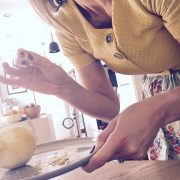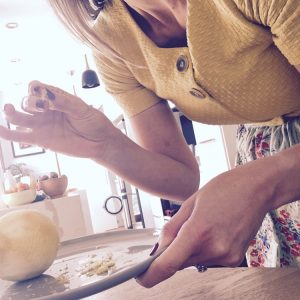
By Ami Mane (Student Intern)
Stress is a common part of life, and fully understanding how your body responds in stress and thoughts relating to it can be helpful. Kelly McGonigal’s (Health Psychologist) TED Talk “How to Make Stress Your Friend”
https://www.ted.com/talks/kelly_mcgonigal_how_to_make_stress_your_friend#t-806317
introduces how thoughts relate to stress and their impact on the body. Stress can result in sweaty palms, a pounding heart, racing mind, however excess stress can have other symptoms such as detrimental effects to the nervous system, damage to the organs, accelerated ageing and more. Individuals that experience ongoing stress regularly, may find that they worry about the health repercussions. High blood pressure, heart conditions, diabetes and obesity are all conditions that have been linked to high stress. Indeed, approximately 110 million people die worldwide every year due to stress related effects, that is seven people every two seconds. This statistic is something that has been extensively researched in conjunction with how this number can be reduced with various stress-reducing activities.
McGonigal discusses a survey of 30,000 adults in the US about their stress levels, asking the question “do you believe stress is harmful to your health?” For the next 8 years, these adults were tracked and public health records were checked to see who had died from stress related causes. They found that 43% of individuals that had experienced a high degree of stress in the previous years, had an increased chance of dying. However, this only happened to the people that believed stress was having a negative impact on their health. In other words, people that experienced a lot of stress but did not believe it was harmful to their health were no more likely to die from stress related deaths than individuals that experienced very little stress. In fact, these individuals had the lowest risk of dying out of everyone in the study, including low-stress individuals.
This leads us to the question: Is changing the way you think about stress better for your health? McGonigal says “Yes!!!” If you change your attitude to stress, your body, in turn, it is likely to change its response to stress. For example, if you are in a stressful exam situation, many will typically view this pressure and anxiety as a stressful and negative experience. However, instead of viewing these responses as bad, you can view them in a different way. You change your attitude to believing this stress is preparing you for something, energising your body and getting you prepared for a challenge. If you view stress as courage, confidence, not fear, your body will too. When your body goes into a stress response to a situation, the heart rate increases and blood vessels will constrict. This is part of the reason stress is often associated with cardiovascular disease. When an individual views a stress response as a helpful form of courage, the blood vessels stay relaxed. This demonstrates that the way you think about stress matters!!!! For some, it may be the difference between having a stress-induced heart attack in your 50s or living well until your older age.
Oxytocin, sometimes referred to as the cuddle or love hormone, can prime you to strengthen your social relationships. It makes you crave physical contact. Oxytocin increases empathy, care and compassion. Many do not know that oxytocin is also a stress hormone. Oxytocin is pumped out of the pituitary gland when you are stressed, and when released it pushes you in the direction of seeking support from people around you. Telling others how you feel rather than keeping it to yourself helps you surround yourself with people that can support you, ultimately decreasing stress. Social and physical contact releases oxytocin, and oxytocin acts as a natural anti-inflammatory protecting your cardiovascular system from the negative effects of stress. It helps your heart cells heal from stress induced damage, essentially. This effect was supported by another study that assessed a group of around 1000 adults asking how much stress they have experienced in the past year, as well as, how much time they had spent helping neighbours, family and friends. They found that for major life stressors (such as family crises or financial issues) this increased the chance of death by 30%. However, individuals that spent time caring for others had no stress-related increase in chance of dying. Therefore, spending time caring for others and viewing your stress response as helpful can assist with well-being. Being compassionate to your body responses in stress can also be helpful and coping statements can assist this. For example, “It is ok that my body is responding this way” and McGonigal says “this is my body helping me rise to this challenge!”




